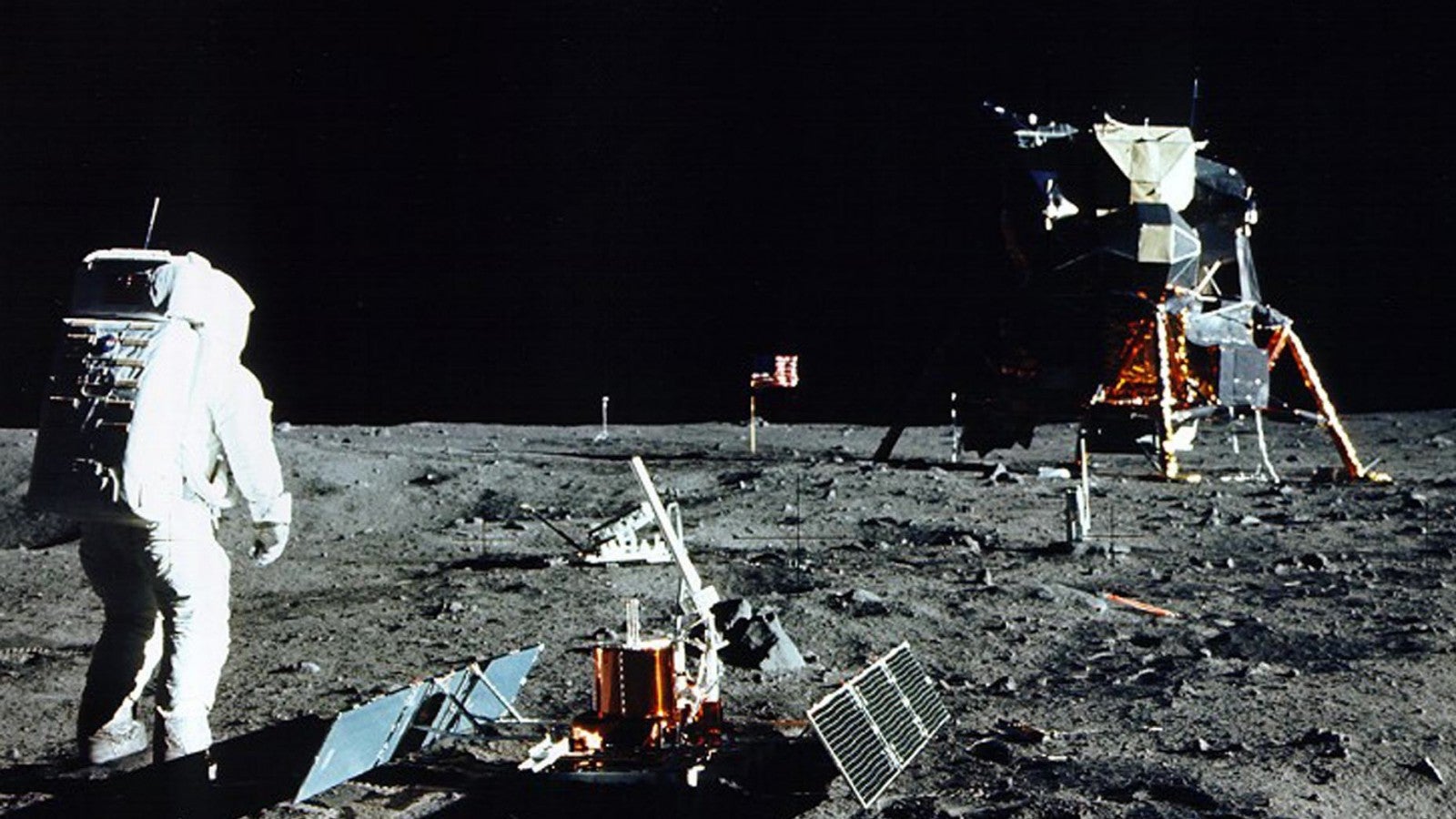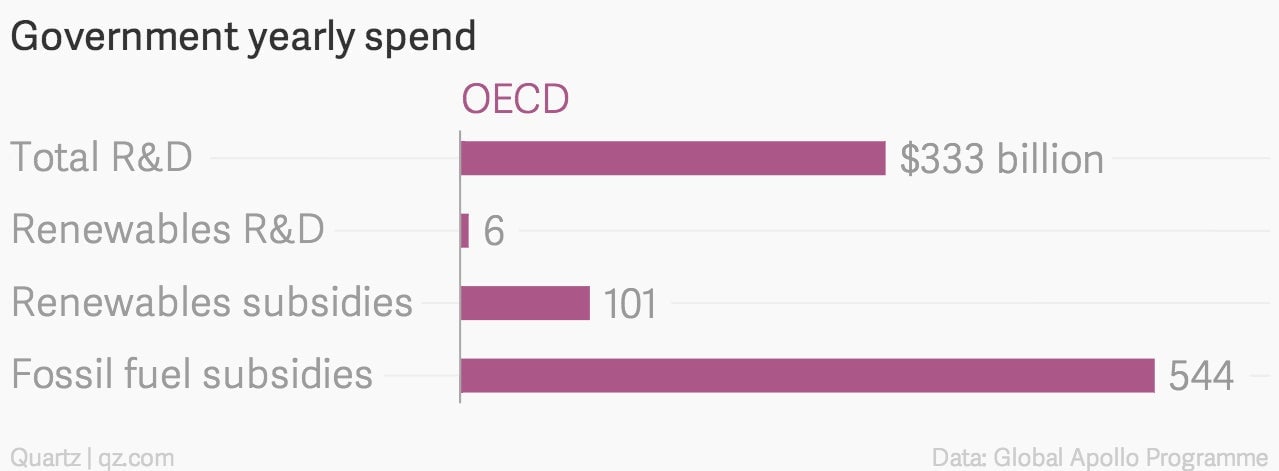Scientists say the world will run on renewables in ten years—if we spend like we did to put a man on the moon
A campaign launched today is asking the world’s governments to invest in driving down the cost of renewable energy, seeking to make it cheaper than coal power—in all countries—in just ten years.


A campaign launched today is asking the world’s governments to invest in driving down the cost of renewable energy, seeking to make it cheaper than coal power—in all countries—in just ten years.
Comparing the effort with the drive for space exploration technology during its golden age, the new report (pdf) by a group of British scientists has called for a global, government-funded initiative, a “Global Apollo Programme,” to tackle the problem of climate change. They say the necessary spend is similar to the amount plowed into funding the research and technology necessary for a moon landing back in the 1960s—$150 billion at today’s prices. The original Apollo space mission was achieved because it captured the imagination of a generation, they say, and a similar enthusiasm and financial commitment can achieve equally dazzling results with climate change.
Specifically, they want countries to pump 0.02% of national GDP yearly into research and development for clean energy, with a focus on solar and wind power. Their three priorities are renewable electricity generation itself, storage of energy to tackle the problem of intermittent sun and wind, and “smart grids” that make moving energy from place to place more efficient.
The group is led by Sir David King, former chief scientific advisor to the UK government, and six other leading members of academia and the civil service. The scientists say that while no government has yet made a firm commitment to the plan, they have been having talks for a year and it will be discussed in the forthcoming G7 meeting later this week.
The plan is to avert the crisis that, they say, will ensue from a 2 degrees Celsius (3.6 degrees Fahrenheit) rise in average global temperature. Such a rise would be the result of carbon dioxide levels that the planet is on course to hit by 2035.
So far, the report claims, governments have relied too heavily on the private sector to solve a problem which is as dangerous as warfare, while at the same time poorly incentivizing development and underfunding research:

“In the past, when our way of life has been threatened, governments have mounted major scientific programmes to overcome the challenges,” the report authors wrote. “In the Cold War the Apollo Programme placed a man on the moon. This programme engaged many of the best minds in America. Today we need a global Apollo programme to tackle climate change.”